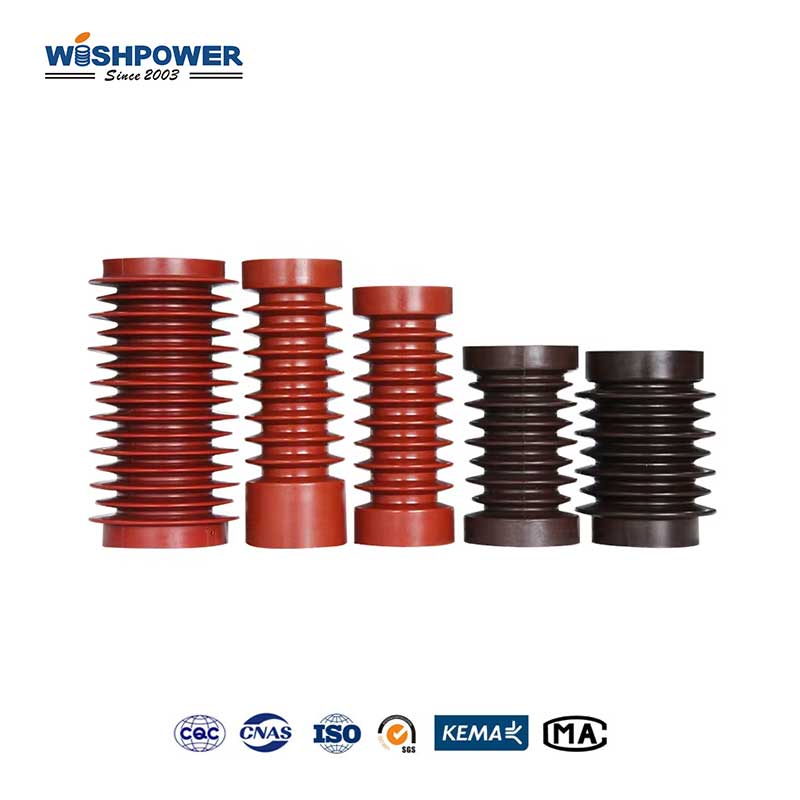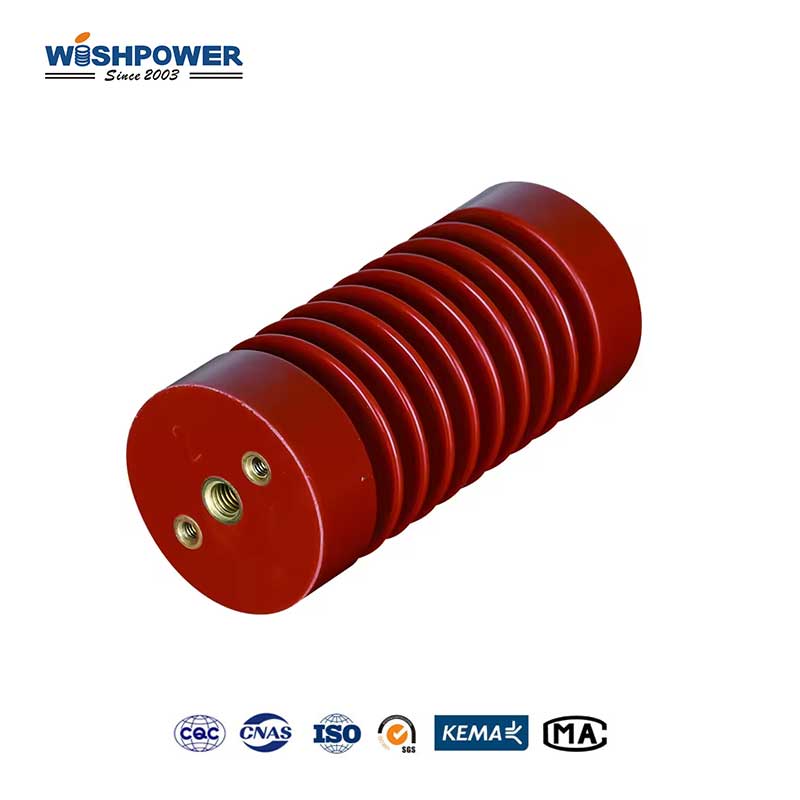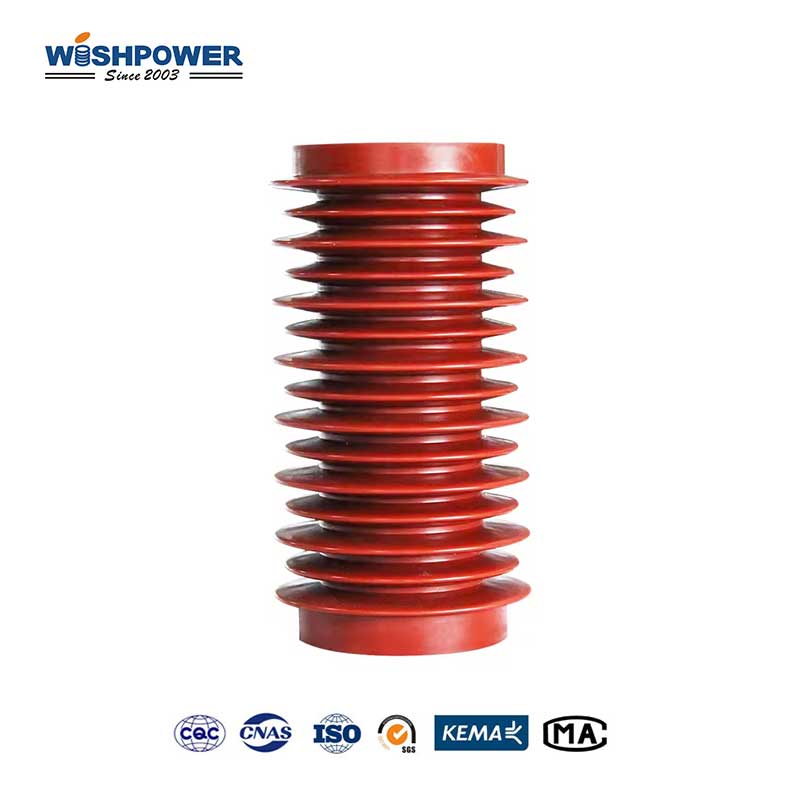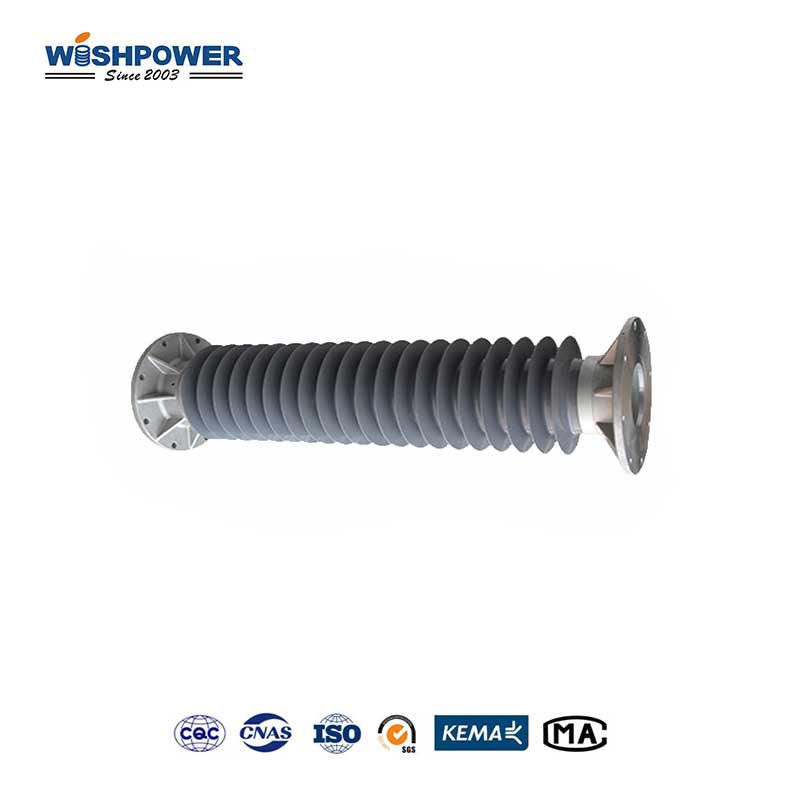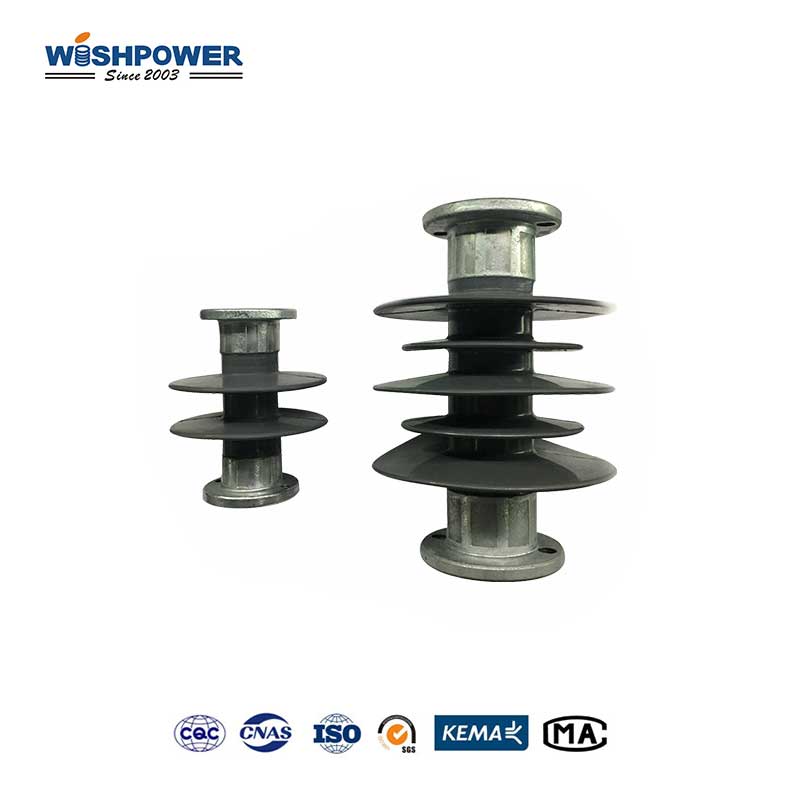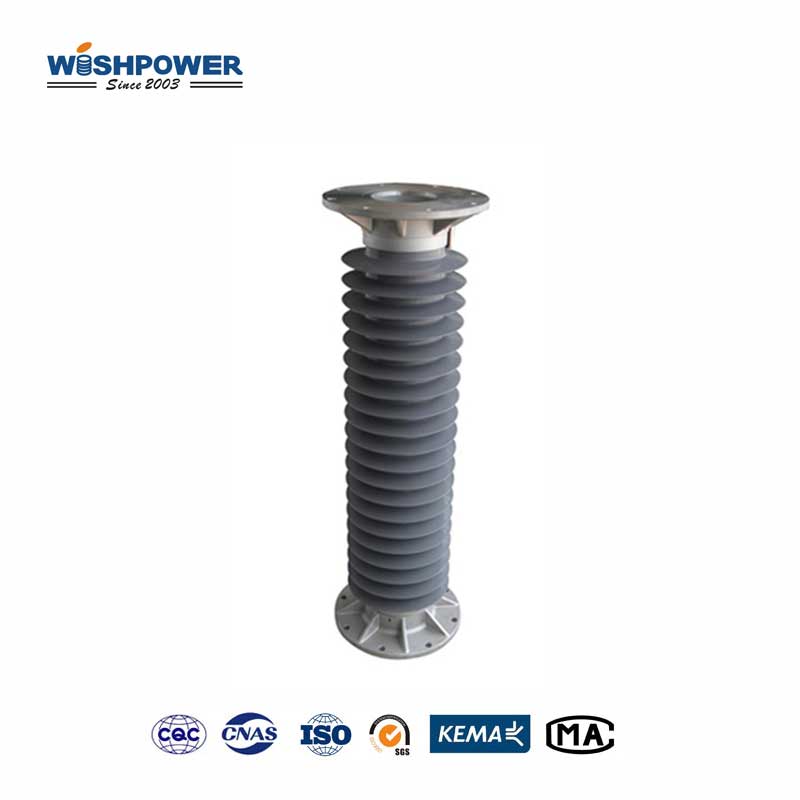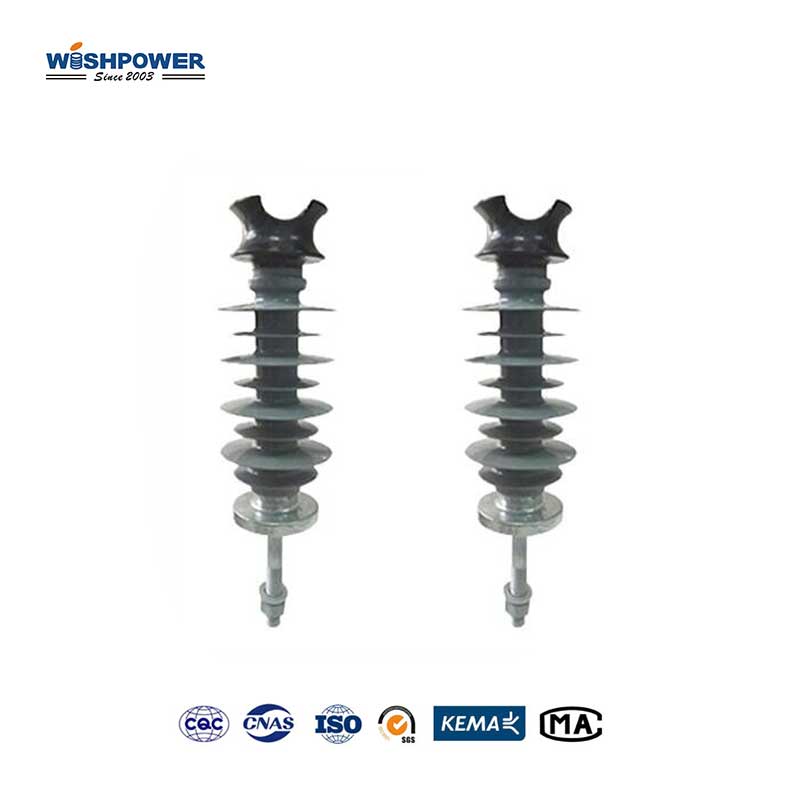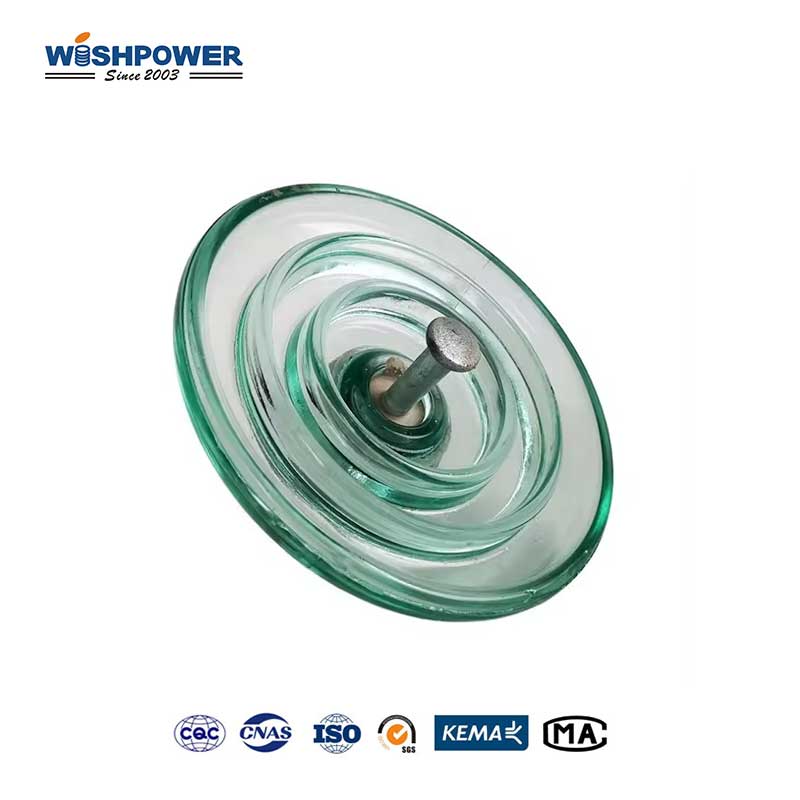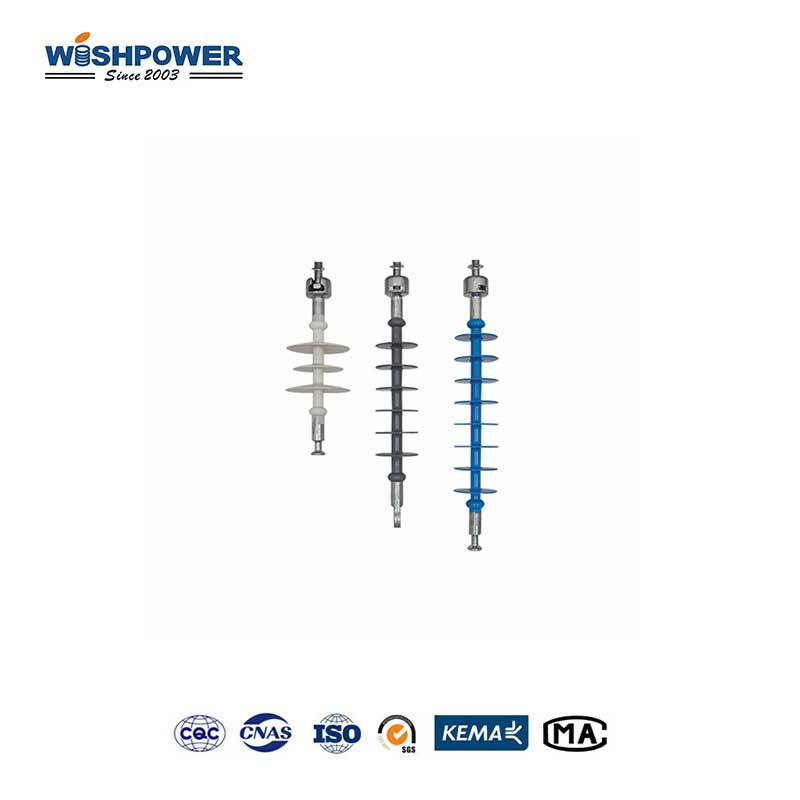Specification
| Product Type |
FS400A-25/12 |
FS460B-29/12.5 |
| Specified Voltage |
25 kV |
29 kV |
| Specified Mechanical Bending Load |
12 kN |
12.5 kN |
| Section Length |
400±3 mm |
460±3 mm |
| Min Nominal Creepage Distance |
1200 mm |
1350 mm |
| Lightning lmpulse Withstand Voltage(Peak Value) |
195 kV |
220 kV |
| Power Frequency Withstand Voltage Test-Dry |
120 kV |
130 kV |
| Power Frequency Withstand Voltage Test-Wet |
90 kV |
100 kV |
Wishpower has more than 20 years of experience as a professional insulator manufacturer. We provide you with professional products and related solutions. Please get professional product and technical support directly through this website or info@wishpower.net
What is the Bus Post Insulator?
The Bus Post Insulator is defined as a specific equipment part of electrical substations and switchyards to provide support and electrical isolation of busbars from the ground. They are crucial in that they considerably enable the transmission of electricity in installations that involve high voltages. They are utilized to support the busbar, which are power-fed rigid bar that transmit electricity from input to output circuits while guaranteeing that the busbars are placed out of reach of the connected structures and other metals. They are prone to both mechanical and electrical shocks and therefore require to be made of substances capable of withstanding high voltage charges and pressures. Usually, they are of high-strength materials like porcelain or polymer composites. Porcelain insulators have been in use for many years and are regarded as very reliable possessing outstanding electrical characteristics. Polymer composite insulators have on the other hand few benefits such as; being lighter in weight, the insulators not being easily vandalized, and giving better performance under polluted conditions. These are made in different classes and capacities to meet distinct voltage and mechanical load requirements.
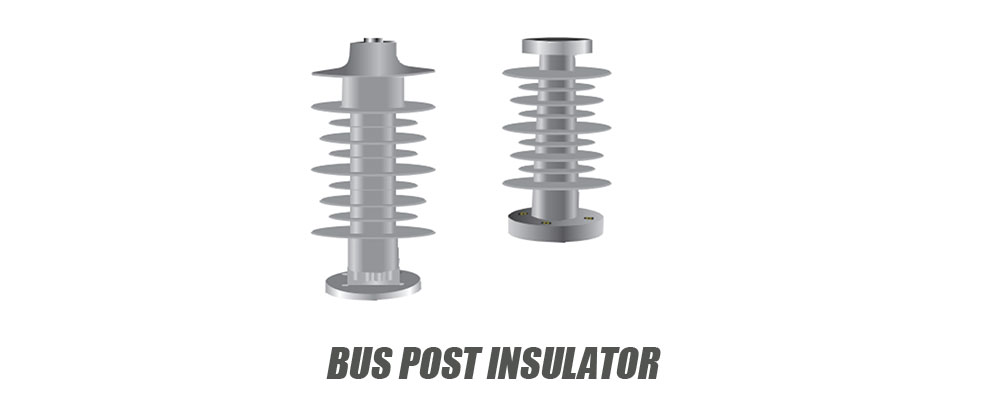
Unique Features
- High Load-Bearing Capacity:
Composite Bus Post Insulators are intended to negotiate the significant load of the busbars and the related mechanical concerns. They are capable of taking substantial axial and radial loads, and thus, ideal solutions when it comes to supporting heavy and broad busbar stations in substations.
- Customizable Designs for Specific Applications:
It can be adjusted to the particular specifications of the electrical systems required shapes, sizes, and positioning of the cover. Some of the other insulator types have fixed designs, unlike this one which can be produced in full-customized styles.
- Integrated Mounting Features:
They frequently incorporate mounting provisions whereby the mounting of integrated equipment like potential transformers, current transformers, and surge arresters can easily be installed.
- Enhanced Thermal Expansion Accommodation:
It is specially built to enable it to handle cases of thermal expansion and contraction of the busbars. This feature enables the busbar to have its structural and aligning integrity checked and achieved.
- Long Creepage Distance for Pollution Performance:
These insulators have a high value of the creepage distance, especially when the environment is polluted or located near the coast.
- High Dielectric Strength:
Although numerous insulators can provide a good dielectric constant, they are designed to have an extremely high dielectric strength to avoid flashover at high voltage systems. This makes them well appropriate to be utilized in substations possessing very high voltage systems.
Benefits
- Improved System Reliability:
Since the bus post insulator in substations offers stiff support and high electrical insulation to busbars, the systems governing the flow of electricity remain stable, and the instances of likelihood of outages and failures to the lowest.
- Enhanced Safety:
These insulators offer good protection to electric conductors of high voltages to minimize possibilities of contact which may lead to an electric shock creating overall safety to involve maintenance crew and equipment.
- Reduced Maintenance Costs:
Because of their ability to withstand the forces of the environment, They do not need to be replaced or serviced as often, which results in reduced lifetime expenses of the item.
- Increased Operational Efficiency:
The stable performance means effective power flow control with less loss and hence it improves the effectiveness of the electric power system network.
- Versatility in Application:
The designs can be customized and hence can be used in almost any voltage necessary for the various substation layouts.
- Optimized Space Utilization:
Support and additional equipment for busbars can take up less space, which is extremely beneficial for the overall design and placement of substations.
- Environmental Adaptability:
They cannot be easily degraded by pollution, UV radiation, or moisture making them suitable to be used in various weather conditions such as industrial areas or areas close to the sea.
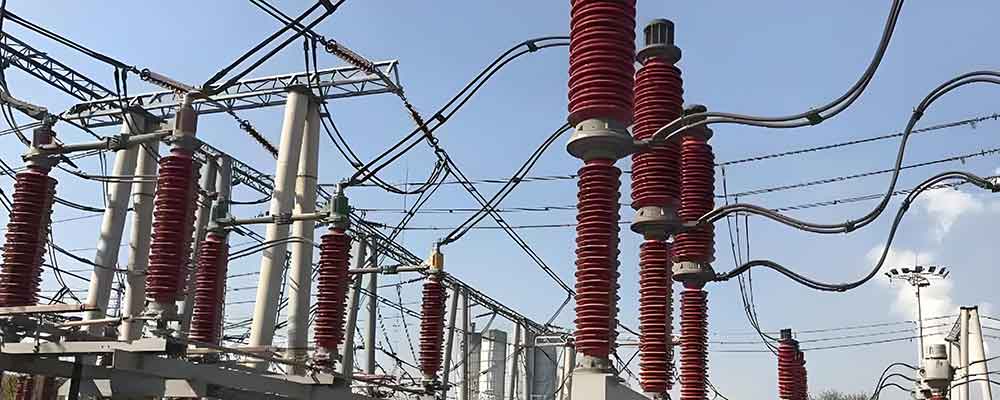
Application
- Power Generation:
Applied in power plant for supporting and insulating busbars which supply electricity from the plant to the distribution network.
- Electric Utilities:
Used in substations to regulate the flow of electric current from the main high voltage transmission system to the rest of the distribution system which is at a lower voltage.
- Renewable Energy:
used in applications of renewable electricity like wind power stations, and photovoltaic solar power plants to support and insulate bar spacing connecting renewable resources to power grids.
- Industrial Facilities:
Used in large industries to guarantee the supply of steady and high electric power to appliances and production lines.
- Railway Electrification:
Installed in railway substation to suspend and insulate busbar that supplies electricity to the railway system for train use.
- Oil and Gas:
The polymer bus post insulator as an insulator is used in the oil and gas industries especially the offshore and regional to control the flow of electricity in the industry and ensure a safe flow of power.
Exhibition

Certificate

Hot Tags: Bus Post Insulator, Composite Insulator, China, manufacturers, ISO factory, wholesale, KEMA, high quantity, best, price, low to high voltage














